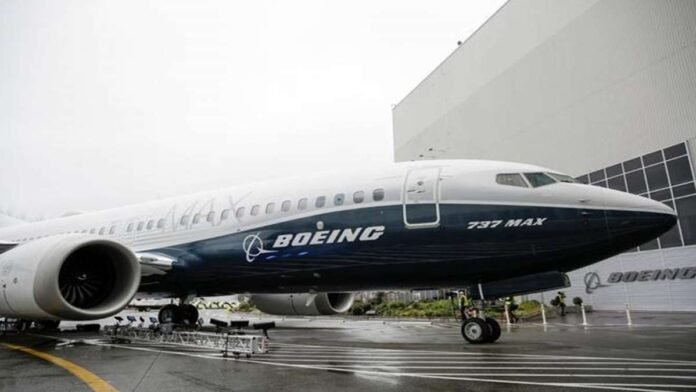Boeing advised airlines to evaluate their B737 Max fleet after one international operator found a bolt with a missing nut during normal maintenance. The Federal Aviation Administration (FAA) is closely monitoring Boeing 737 Max “targetted inspection” for a loose rudder control system bolt.
Boeing advised airlines to evaluate their B737 Max fleet after one international operator found a bolt with a missing nut during normal maintenance. Boeing stated on Friday that the airplane’s issue was resolved. Indian airlines Akasa Air, SpiceJet, and Air India Express operate B737 Max planes.
The Federal Aviation Administration (FAA) said it was closely monitoring “targetted inspection,” of Boeing 737 Max planes for a possible loose bolt in the rudder control system on Thursday. “The airplane’s issue was fixed. As a precaution, we encourage operators inspect their 737 MAX planes and report any discoveries “Boeing said.
The aircraft manufacturer alerted the FAA and would update it. SpiceJet and Air India Express did not respond to queries, while Akasa Air said the issue had not affected its operating fleet or aircraft deliveries. Boeing informed us of this issue.
Like all operators worldwide, Akasa will follow the manufacturer or regulator’s checks and procedures in compliance with our highest safety standards “Akasa Air’s spokeswoman stated on Saturday. The airline noted, “our operating fleet and deliveries are not impacted so far.”
The FAA stated Thursday that Boeing has issued a Multi-Operator Message (MOM) advising operators of modern single-aisle airplanes to check rudder tie rods for loose hardware in consultation with it. The FAA said it will communicate with Boeing and airlines during inspections.
Conclusion
Boeing advised airlines to evaluate their B737 Max fleet after one international operator found a bolt with a missing nut during normal maintenance. The FAA is actively monitoring “targetted inspection” of Boeing 737 Max planes for a possible loose rudder control system bolt. Boeing alerted the FAA and will update it. The FAA wants airlines to use their authorized Safety Management Systems to find loose hardware and offer specifics on how soon these two-hour inspections can be performed. If further loose or missing gear is found, the FAA will take action.



